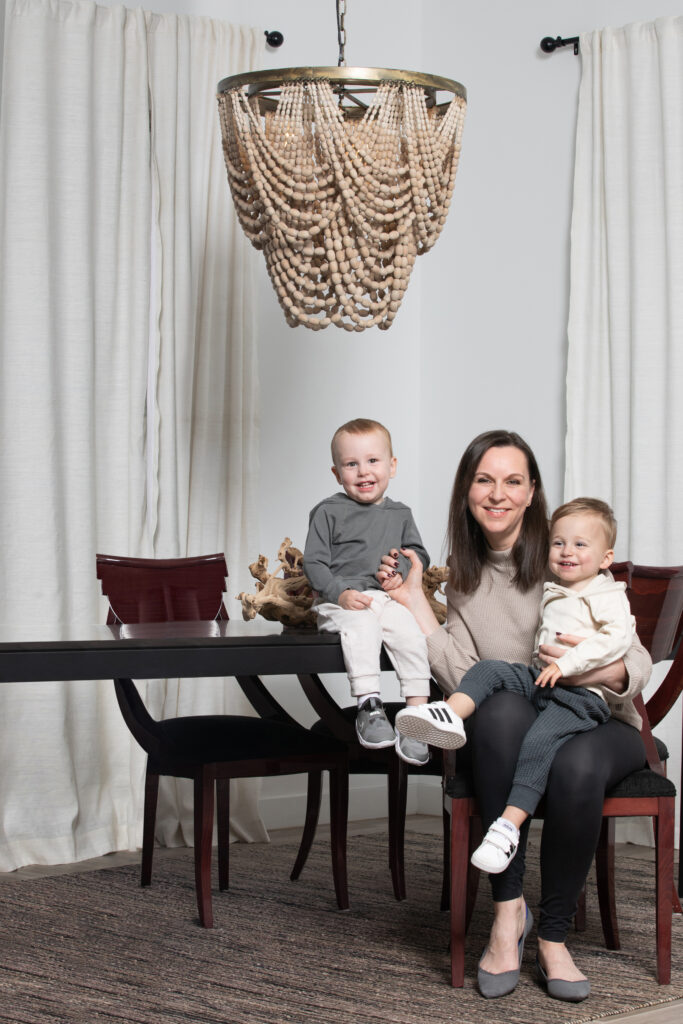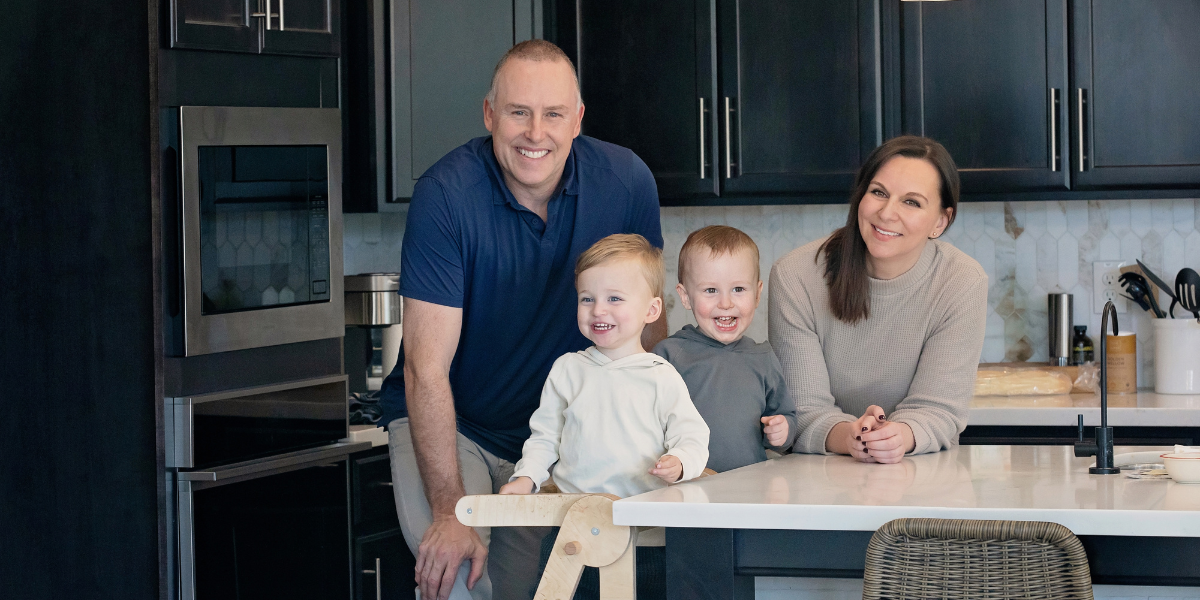They say nothing beats a mother’s instincts, and Mila Delnero is a fierce believer in the old adage. A mother to twin boys who just turned two, it would have been easy to be overwhelmed and to chalk up some of her nagging concerns to first-time parenting or, as many told her, “Things her children would grow out of.”
But her gut said otherwise.
“I just started to see little things here and there,” Delnero recalls, adding that she first noticed signs with her son Roman before he turned one. “He was a pretty emotional baby and didn’t sleep well at night. But then he stopped responding to his name and making eye contact. He had some repetitive things that he would do – movements with his body and hands. He would also hyper-focus on some activities. I wasn’t sure if there was a reason to worry, it was my first time being a mom, but I started to take notes.”
Answers lead to early intervention
When those red flags were still lingering after Roman’s first birthday, Delnero sought professional answers. Despite being told not to worry by her pediatrician, she still felt something was missing, so a friend who had recently gone through diagnostic services connected her with the team at SARRC. Roman was officially diagnosed with autism at 14 months old.
“We signed Roman up for JumpStart and it was just incredible,” Delnero recalls. “I learned about all things autism. I soaked it up. And it helped to make that early support for my child and get him intervention so he can grow and be successful.”
Delnero says while she and her family were focused on Roman, their other son, Adrian, began to show signs of autism as well. At about 15 months old, he began to regress, no longer making eye contact or responding to his name, a similar pattern to his brother. On a suggestion from SARRC, the Delneros brought Adrian in to be a part of the Milestones® program where he could be monitored. He was soon diagnosed with autism as well.
Aiding parental intuition
Both the Milestones® and JumpStart® programs both guide families through important early steps including diagnosis and getting started. Milestones is a free program where parents are offered evidence-based information on key developmental markers to aid in monitoring their child’s growth and learning. The program focuses on children up to 18 months old; babies can enroll between 6 and 14 months to participate, and assessment and check-ins happen every few months and can result in a suggestion to pursue a diagnostic evaluation and an offer to participate in a very early intervention option.
“Milestones is such a unique service at SARRC,” says Alex Boglio, SARRC clinical services director. “It’s a pre-diagnostic service that we offer for babies, and most of the families who participate have an older child with autism and are concerned about the reoccurrence of autism with their second, third, or fourth child.”
For Delnero, the Milestones program was an enormous parenting gift.
“That program was invaluable in guiding me with my second child and pointing out those red flags that I might have overlooked otherwise,” Delnero says. “Because we received the diagnosis so quickly, in December of 2023 I was able to get him into therapy right away.”
Getting a Jumpstart
SARRC’s six-week JumpStart program helps families who are new to autism spectrum disorder (ASD) by providing important information, support, and strategies. The program connects families with a licensed board certified behavior analyst (BCBA) for coaching sessions that are customized to individual needs.
Boglio notes that JumpStart is often a memorable part of parents’ journeys as they start navigating with a diagnosis of autism in hand.
“We provide parents with essential and foundational information to make decisions and understand service options,” she says. “Simultaneously, we teach some practical strategies they can put into their parenting and everyday routines to focus on their child’s communication and learning. For many families enrolled in one of our comprehensive service options, JumpStart came first.”
Delnero says the tools and techniques she learned in JumpStart have built a vital groundwork for her and her husband’s parenting.
“All of the education I’ve received helped me as a mother. It helped my husband,” Delnero says. “I am very vocal now about engagement with our children. I’m able to share things with others who may watch our kids. Every touch is meaningful and important, and I learned that.”
JumpStart has been serving families new to autism and empowering parents in the Valley for more than 20 years, and SARRC has continued to invest resources to keep the parent education and resources shared up to date while keeping the heart of the program consistent. Making this program accessible is key to SARRC’s mission, Boglio shares.
“We want every family in Arizona to have access to JumpStart,” she says.
Persistent and insistent
Boglio adds that these programs are only proving to be more essential as new information about adult outcomes with autism is published.
“When we look at adults with positive employment or post-secondary education and independent living results, some predictors are parental involvement and high expectations, and formal and informal support networks,” she says. “Showing up is a significant first step, and finding the community and services you, your child, and your family need to be successful might be a great second.”
For Delnero, trusting her gut and taking those first steps will forever be etched in her memory.
“When you think something is wrong with your child, it’s terrifying,” Delnero says. “The earlier you get acquainted with what autism is and what possible outcomes there are and the help you can get now, the better. It helped me to see the world wasn’t crashing in on me. It put the control in my hands, so I was empowered. It became my superpower.”
Story by Ginger Scott
Photography by Carrie Evans Photography


